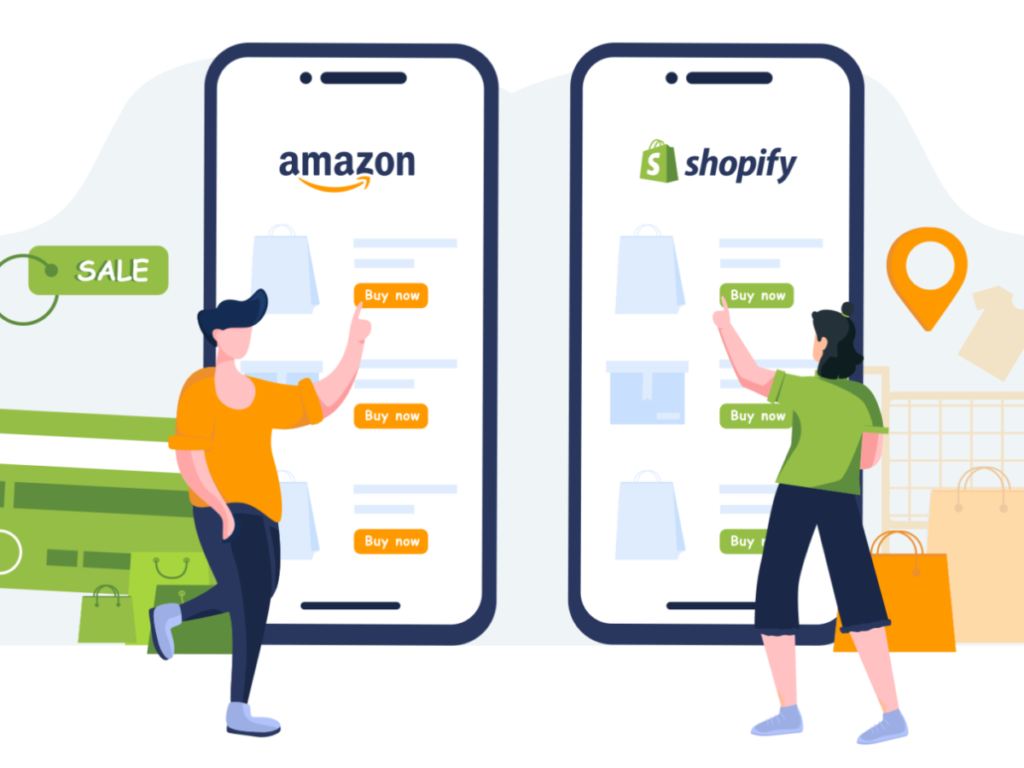Mobile CRM refers to the use of mobile devices such as smartphones and tablets to access and manage customer relationship management (CRM) software. Mobile CRM enables sales and marketing professionals to access and update customer data, sales leads, and other important information on-the-go, regardless of their location.
With mobile CRM, sales teams can access customer data, view their purchase history, track leads and opportunities, and manage their schedules from their mobile devices. This allows them to stay connected with their customers, collaborate with team members, and respond to customer inquiries in real-time.
Mobile CRM provides a number of benefits for businesses, including increased productivity, improved collaboration, and better customer service. By providing real-time access to customer data, sales teams can quickly respond to customer inquiries, resolve issues, and close deals faster.
In addition, mobile CRM can be integrated with other business tools such as email, calendar, and social media, providing a seamless experience for sales and marketing professionals. As mobile devices continue to play an increasingly important role in our daily lives, mobile CRM is becoming an essential tool for businesses of all sizes.
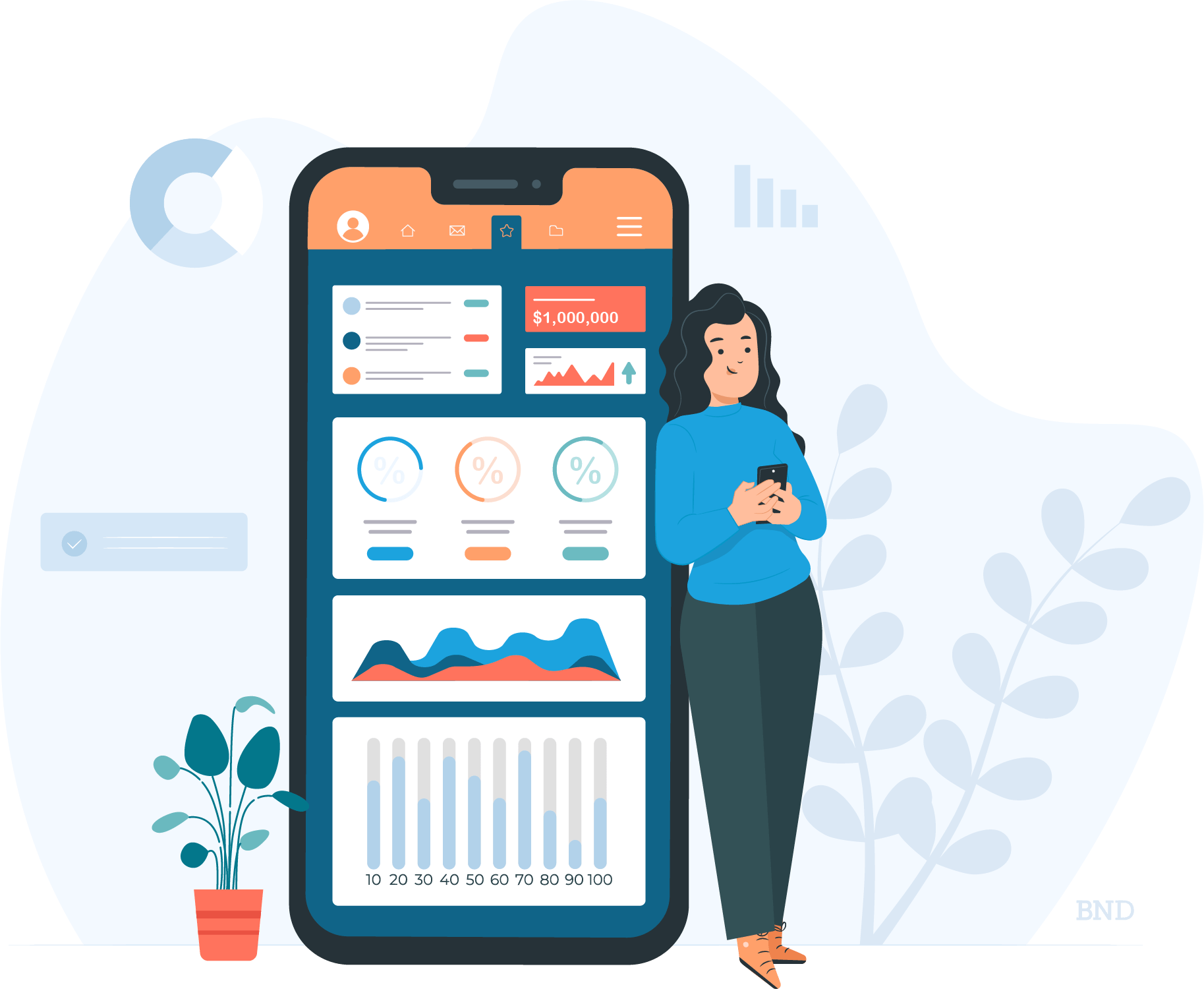
What are the Benefits of Mobile CRM ?
Mobile CRM offers numerous benefits to businesses, including :
- Increased Productivity : With mobile CRM, sales teams can access customer data, view their purchase history, track leads and opportunities, and manage their schedules from their mobile devices. This allows them to stay connected with their customers, collaborate with team members, and respond to customer inquiries in real-time, which can significantly increase their productivity.
- Better Customer Service : Mobile CRM allows sales teams to quickly respond to customer inquiries, resolve issues, and close deals faster. By providing real-time access to customer data, sales teams can provide better customer service and build stronger relationships with their customers.
- Improved Collaboration : Mobile CRM can be integrated with other business tools such as email, calendar, and social media, providing a seamless experience for sales and marketing professionals. This allows them to collaborate more effectively with their team members, share information, and stay on top of their tasks.
- Access to Real-time Data : Mobile CRM provides real-time access to customer data, allowing sales teams to make informed decisions and take quick action when needed. This can help them stay ahead of their competitors and win more business.
- Increased Sales : With mobile CRM, sales teams can access customer data, track leads and opportunities, and manage their schedules from anywhere. This allows them to stay focused on their sales goals and close deals faster, which can lead to increased sales and revenue for the business.
Overall, mobile CRM is an essential tool for businesses looking to improve their productivity, customer service, and sales performance.
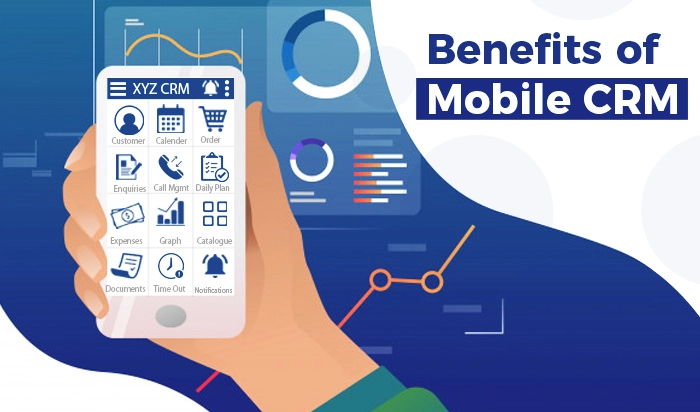
Why do we need a Mobile CRM ?
Mobile CRM is an essential tool for businesses of all sizes, for the following reasons :
- Accessibility : With the increasing use of mobile devices, it is crucial for businesses to have a mobile CRM system in place. Mobile CRM provides real-time access to customer data and allows sales teams to manage their schedules, track leads, and access important information from anywhere, which can significantly improve productivity and efficiency.
- Improved Customer Experience : Mobile CRM allows businesses to provide better customer service by enabling sales teams to quickly respond to customer inquiries and resolve issues in real-time. This can help build stronger customer relationships and increase customer satisfaction.
- Sales Growth : Mobile CRM allows sales teams to manage their sales pipeline, track leads, and close deals faster. This can lead to increased sales and revenue for the business.
- Collaboration : Mobile CRM allows sales teams to collaborate more effectively with their team members and share information seamlessly. This can help improve communication and collaboration, leading to better results.
- Competitive Advantage : Mobile CRM can provide businesses with a competitive advantage by allowing sales teams to access real-time data, make informed decisions, and take quick action. This can help businesses stay ahead of their competitors and win more business.
In summary, mobile CRM is a critical tool for businesses looking to improve their customer experience, increase sales, and gain a competitive advantage. By enabling sales teams to access important information and manage their tasks from anywhere, mobile CRM can help businesses improve productivity, efficiency, and overall performance.
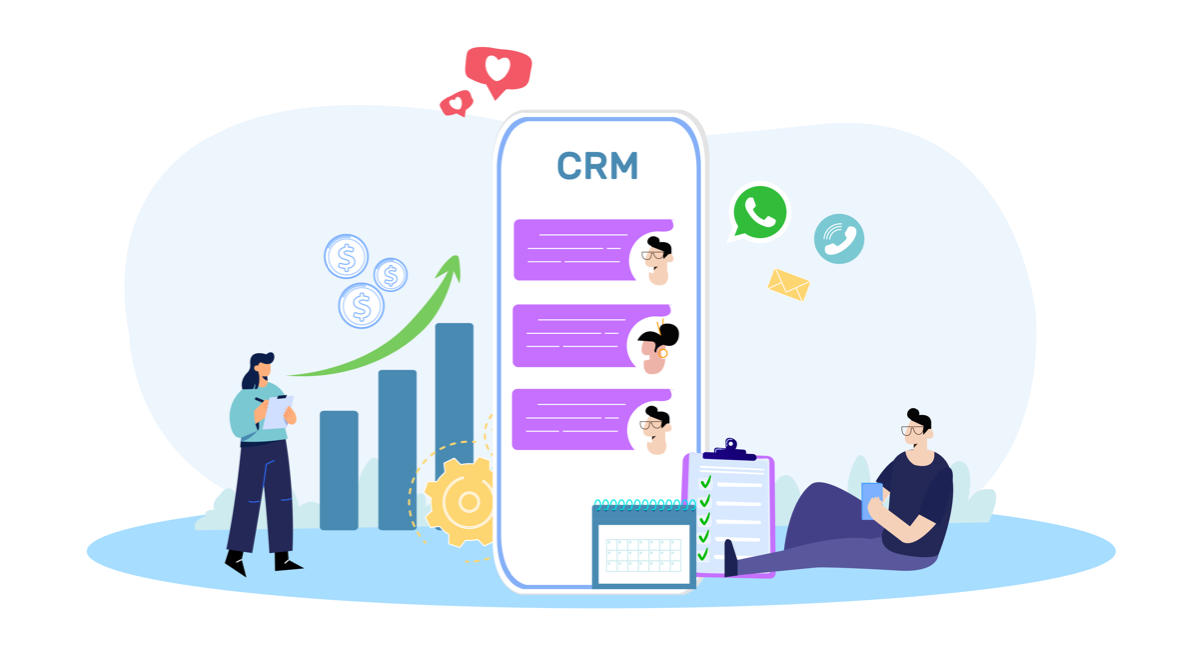
What are the Features of Mobile CRM ?
Mobile CRM provides a range of features that enable sales teams to manage customer relationships, track leads, and close deals from their mobile devices. Here are some of the key features of mobile CRM :
- Contact Management : Mobile CRM allows sales teams to manage their customer contacts, view their purchase history, and access important customer data from anywhere.
- Lead Management : With mobile CRM, sales teams can track their leads and opportunities, view their progress, and prioritize their tasks to ensure they are focusing on the most promising leads.
- Task Management : Mobile CRM enables sales teams to manage their tasks and schedules, set reminders, and receive notifications for important events.
- Sales Forecasting : Mobile CRM provides sales teams with the ability to forecast their sales and revenue, allowing them to make informed decisions and take the necessary actions to achieve their sales goals.
- Reporting : Mobile CRM allows sales teams to generate reports on their sales performance, customer data, and other important metrics. This can help them identify areas for improvement and make data-driven decisions.
- Integration : Mobile CRM can be integrated with other business tools such as email, calendar, and social media, providing a seamless experience for sales and marketing professionals.
- Security : Mobile CRM provides robust security features such as user authentication and data encryption to ensure the protection of sensitive customer data.
Overall, mobile CRM provides a range of features that enable sales teams to manage their customer relationships, track leads, and close deals more efficiently and effectively, from anywhere.
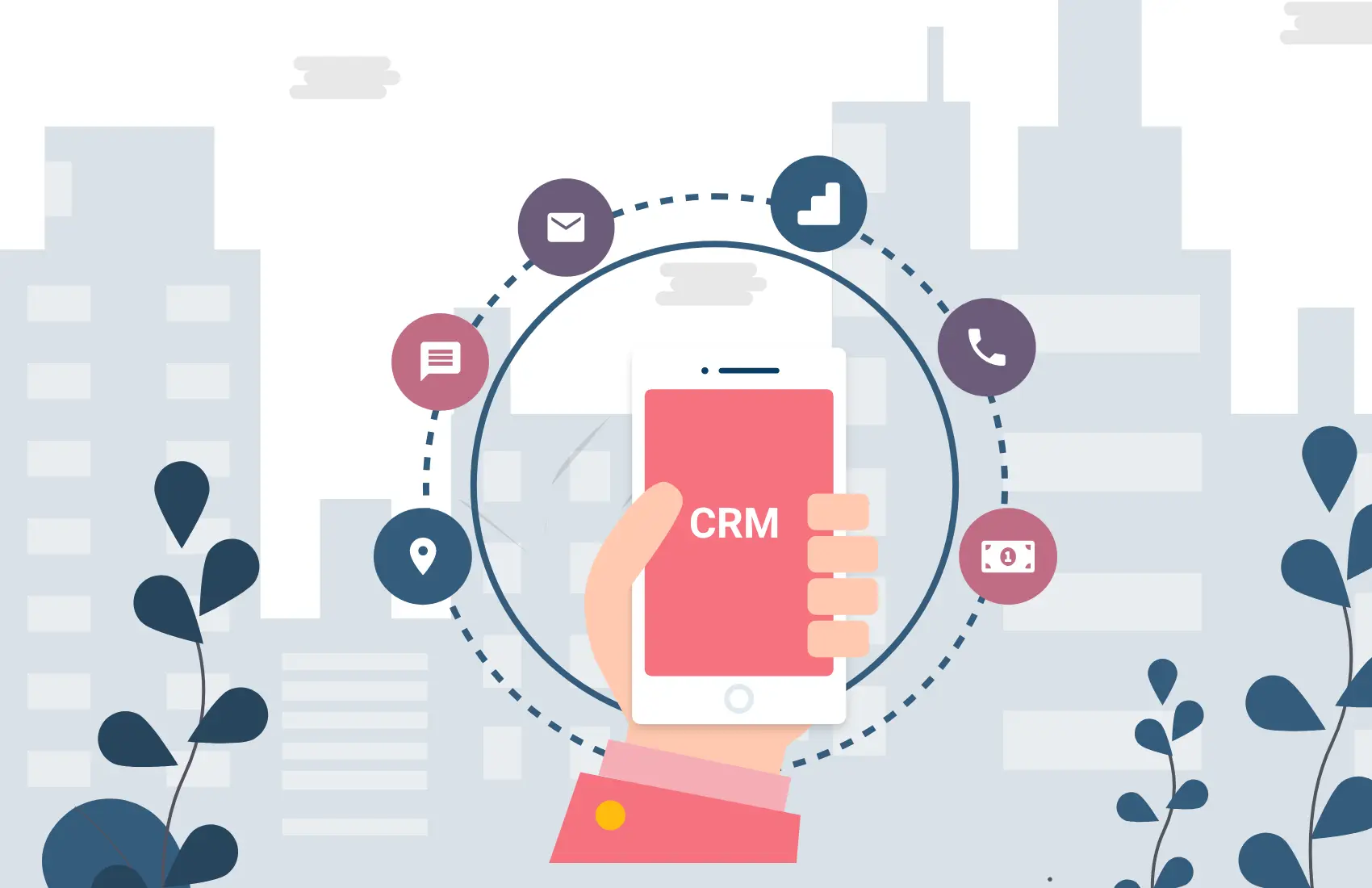
Why Mobile CRM Is Important For Business ?
Mobile CRM, or Customer Relationship Management, refers to using mobile devices to manage and organize customer interactions and data. It is an important tool for businesses because of its ability to increase efficiency, productivity, and customer satisfaction.
Firstly, mobile CRM allows businesses to stay connected with their customers at all times, providing access to customer data, communication histories, and other relevant information on the go. This allows businesses to respond more quickly and effectively to customer needs and inquiries, leading to better customer satisfaction and retention.
Secondly, mobile CRM helps businesses to streamline their sales and marketing processes, automating repetitive tasks and enabling sales teams to access real-time data and analytics. This can help businesses to identify sales opportunities, track progress and improve forecasting accuracy.
Lastly, mobile CRM can help businesses to save time and money by reducing the need for manual data entry and paperwork, and increasing data accuracy and security. This can lead to increased productivity and profitability for businesses.
In summary, mobile CRM is important for businesses as it enables them to stay connected with customers, streamline sales and marketing processes, and save time and money.

How Mobile CRM Work ?
Mobile CRM works by allowing sales and marketing professionals to access and manage customer relationship management (CRM) software from their mobile devices. Here’s how it typically works :
- Access : Sales and marketing professionals can access the mobile CRM system through a mobile app or mobile-optimized web interface.
- Customer Data : The mobile CRM system allows sales teams to access customer data, view their purchase history, and manage their customer relationships from anywhere.
- Lead Management : With mobile CRM, sales teams can track their leads and opportunities, view their progress, and prioritize their tasks to ensure they are focusing on the most promising leads.
- Collaboration : Mobile CRM allows sales teams to collaborate more effectively with their team members and share information seamlessly, leading to better results.
- Security : Mobile CRM provides robust security features such as user authentication and data encryption to ensure the protection of sensitive customer data.
- Integration : Mobile CRM can be integrated with other business tools such as email, calendar, and social media, providing a seamless experience for sales and marketing professionals.
- Real-time Updates : Mobile CRM provides real-time updates on customer data, allowing sales teams to make informed decisions and take quick action when needed.
Overall, mobile CRM enables sales and marketing professionals to access customer data, manage leads and opportunities, and collaborate with team members from their mobile devices, leading to improved productivity, better customer service, and increased sales.

Where Mobile CRM Is Used ?
Mobile CRM can be used in a variety of industries and businesses of all sizes. Here are some examples of where mobile CRM is commonly used :
- Sales Teams : Mobile CRM is widely used by sales teams to manage their leads, track their sales pipeline, and close deals from their mobile devices. It allows sales teams to access customer data, manage tasks, and collaborate with team members, leading to improved productivity and better results.
- Marketing Teams : Mobile CRM can be used by marketing teams to manage their campaigns, track customer engagement, and gather insights from their mobile devices. It allows marketing teams to access customer data, analyze performance, and make data-driven decisions.
- Field Service Teams : Mobile CRM can be used by field service teams to manage customer requests, schedule appointments, and track service tickets from their mobile devices. It allows field service teams to access customer data, manage their tasks, and collaborate with team members, leading to improved customer service and better results.
- Retail : Mobile CRM can be used by retailers to manage customer loyalty programs, track customer purchases, and provide personalized recommendations from their mobile devices. It allows retailers to access customer data, analyze trends, and provide a better customer experience.
- Healthcare : Mobile CRM can be used by healthcare providers to manage patient data, track appointments, and provide personalized care from their mobile devices. It allows healthcare providers to access patient data, manage their schedules, and collaborate with team members, leading to improved patient outcomes and better healthcare delivery.
Overall, mobile CRM can be used in any industry where managing customer relationships and data is essential. It provides a range of features that enable businesses to manage their tasks, collaborate with team members, and make informed decisions from their mobile devices.

How Mobile CRM Earn Money ?
Mobile CRM apps can earn money through various revenue models. Here are some common ways mobile CRM apps make money :
- Subscription-based model : Many mobile CRM apps offer subscription-based pricing, where businesses pay a monthly or annual fee to use the app’s features and services.
- Freemium model : Some mobile CRM apps offer a free basic version of the app, but charge for more advanced features and functionality.
- Pay-per-user model : Some mobile CRM apps charge a fee per user per month, allowing businesses to pay only for the number of users they have on the app.
- Advertising model : Some mobile CRM apps display advertisements within the app, which can generate revenue for the app developer.
- Commission-based model : Some mobile CRM apps work on a commission-based model, where businesses pay a percentage of the sales generated through the app.
- Customization and integration fees : Some mobile CRM apps charge businesses for customization and integration services to tailor the app to their specific needs.
Overall, the revenue model for mobile CRM apps varies based on the app’s features, target market, and pricing strategy. It’s important for app developers to identify their revenue model early on and create a pricing strategy that is both profitable and attractive to potential customers.
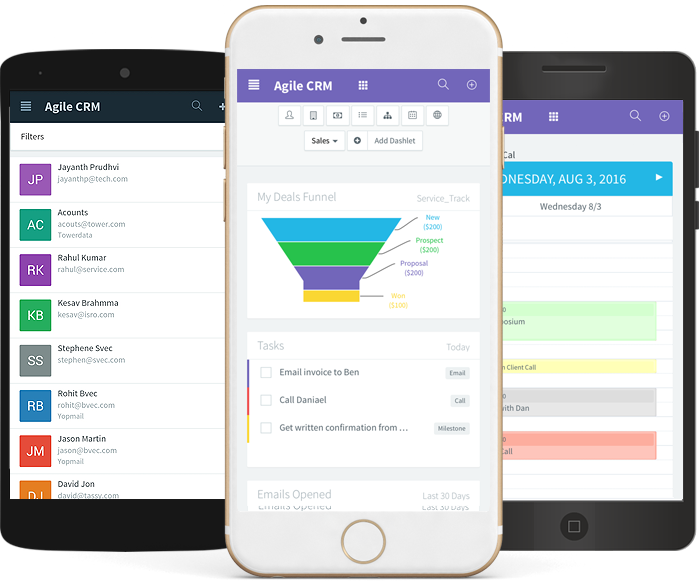
Conclusion :
In conclusion, mobile CRM is a powerful tool that enables sales and marketing professionals to manage customer relationships, track leads, and close deals from their mobile devices. With mobile CRM, sales teams can access customer data, manage tasks, collaborate with team members, and make data-driven decisions from anywhere, leading to improved productivity and better results.
Mobile CRM offers a range of features such as contact management, lead management, task management, sales forecasting, reporting, integration, and security, making it an essential tool for businesses of all sizes and industries. It allows businesses to access customer data, track leads and opportunities, and manage their sales pipeline from anywhere, providing real-time updates and insights.
Furthermore, mobile CRM enables businesses to provide better customer service, personalize their interactions, and build stronger customer relationships. By accessing customer data and providing personalized recommendations, businesses can improve the customer experience and increase customer loyalty.
Overall, mobile CRM is a valuable tool that can help businesses improve their sales and marketing efforts, enhance the customer experience, and achieve their business goals. With the increasing use of mobile devices and remote work, mobile CRM is becoming more important than ever, and businesses that embrace this technology are likely to gain a competitive advantage in the marketplace.

